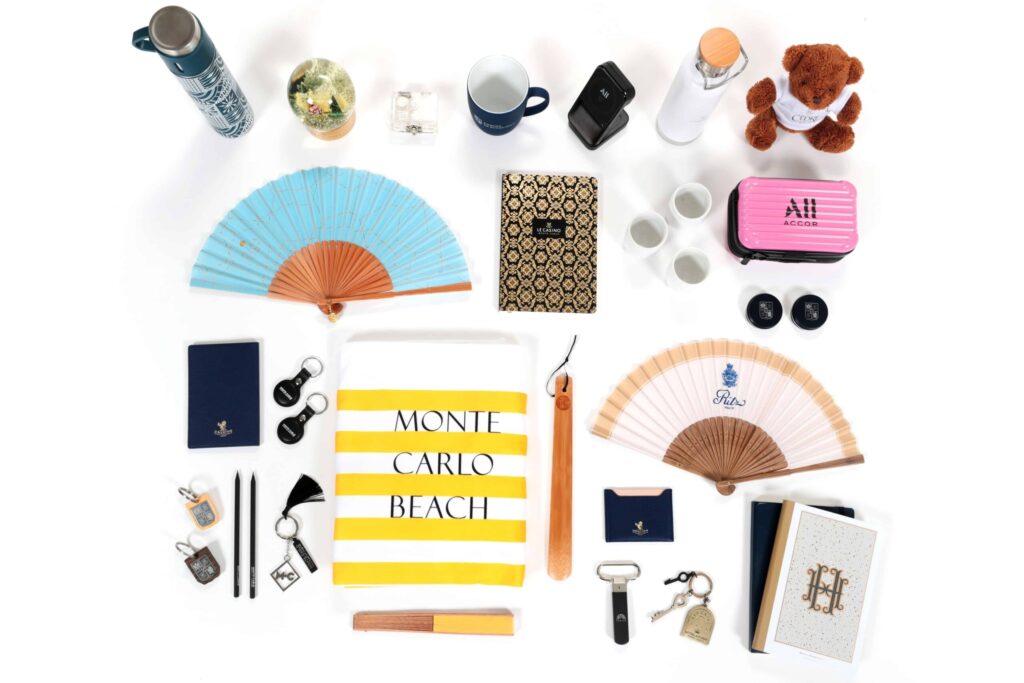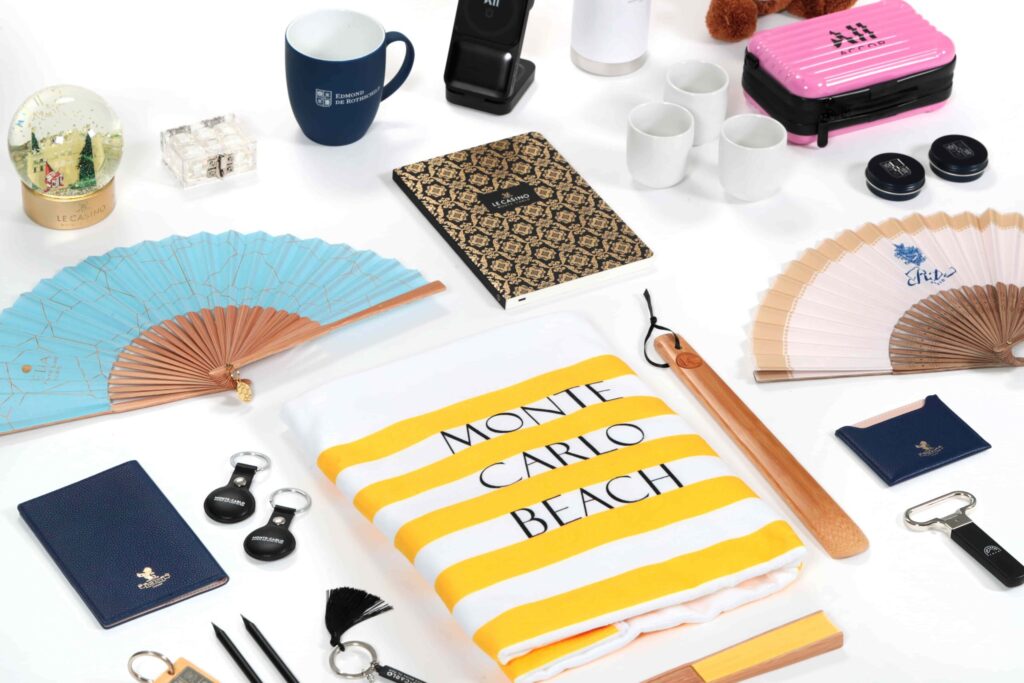The Origins of Private Label Products in the Luxury Industry
For many years, the hospitality industry has invested heavily in private-label products, from simple in-room comforts and consumables to ultra-personalized experiences and even collaborations with artists.
While it may now seem that every hotel chain has an online boutique selling its toiletries, that wasn’t always the case.
In 1999, the Westin chain launched its famous Heavenly Bed, featuring a pillow-top mattress, down comforter, and crisp sheets. Guests didn’t just want to sleep in the “ultra-comfortable” bed; they wanted to take it home. By 2012, Westin had sold more than $125 million worth of its beds, pillows, and scents.
Decades later, the concept of hotel retail has evolved. What began with luxury linens has expanded into new categories designed to enrich the guest experience and generate additional revenue.
“When our guests use a candle with a signature scent from one of our hotels or sleep on their own hotel mattress at home, they are transported back to their hotel stay,” said Dana Hopp Peritz, vice president of retail and experiences at Marriott International.
Establishments no longer limit themselves to linens and fragrances. The MGM Grand in Las Vegas offers artwork and replicas of its iconic lion statue, while others—such as the Four Seasons—allow guests to purchase surfboards that are delivered directly to their homes.
Not every hotel needs to sell its products, but every item should be refined enough that guests want to take it home.
By creating premium private-label collections that reflect both the destination and the unique atmosphere of each property, hotels reaffirm their art of refinement and their commitment to their VIP clientele.
A Constantly Evolving Market
Personalization and Bespoke Offerings
Luxury travel tells stories and creates memories where every detail matters. VIP guests expect more than generic, standard-branded products. Thoughtful, personalized touches reflect each guest’s identity and preferences, creating a truly unique luxury experience.
Luxury hotels are not limited to embroidering every guest’s initials on every towel or robe; there are countless elegant ways to customize products.
Hotels can transform everyday items, robes, stationery, accessories, so they evoke the spirit and personality of each destination. Some might offer a handmade cashmere throw, others a lightweight linen beach blanket that’s adapted to the local atmosphere and setting.
Sustainability and Eco-Responsible Materials
Being eco-conscious is no longer a trend; it’s a genuine commitment, a foundational principle that embodies guests’ environmental values. Belmond, the prestigious luxury hotel chain owned by LVMH, perfectly illustrates this philosophy with its 47 properties across 28 countries, several of which are now entirely plastic-free.
By prioritizing organic, recycled, or biodegradable materials, hotels align themselves with their guests’ values while offering a tangible symbol of their dedication to a sustainable future.
Technological Integration and Smart Features
For VIP guests, one of the greatest marks of luxury is anticipation; meeting their needs before they even express them. From keyless entry systems to personalized lighting settings inspired by previous stays, smart technologies bring both tailor-made comfort and modern elegance.
Experiences and Limited Editions
Some offerings are ephemeral by nature, dictated by seasonality or the availability of local resources. Luxury promotional gifts are no longer disposable, single-brand items; they are unforgettable experiences, emotional moments that guests carry with them. Ideally, these exclusive touches are born from collaborations with local artisans or maisons, adding layers of authenticity and meaning.
Retail and Online Boutiques
More and more hotels are expanding their range of private-label products, linens, robes, towels, perfumes, and offering them for sale both on-site and online.
This not only strengthens brand loyalty but also creates new revenue streams.
Guest Feedback and Data-Driven Choices
Guest feedback has never been more valuable. Preferences, reviews, and shared memories now shape product selections.
By relying on these insights, hotels can offer emotionally resonant items; objects that are cherished rather than forgotten.

Creating Memorable Experiences
Some resorts combine multiple strategies to maximize guest retention and reinforce brand loyalty.
By blending location, occasion, and seasonality, they craft tailor-made experiences that guests cannot find anywhere else.
Imagine a mountain chalet where guests discover, upon arrival, a handmade cashmere throw delicately placed in their room; a thoughtful touch that creates an instant emotional connection. Later, that same throw appears in the hotel’s boutique or online store, displayed with its unique price tag, underlining its exceptional value and inviting guests to purchase additional ones as gifts.
For families with young children, small seasonal touches create moments of pure joy. A snowman kit—complete with polished stones, wooden buttons, and a scarf—invites parents and children to share an unforgettable moment together. Long after the snow has melted, that scarf becomes a keepsake that carries time and memory, strengthening the emotional bond with the hotel.
Some establishments go even further, enriching stays with unique experiences: personalized snorkeling kits, poolside movie nights with branded floating accessories, or even a signature wine collection.
By empowering their teams to offer thoughtful, meaningful gestures, these hotels anticipate guest needs and turn each stay into a deeply memorable experience.
Key Factors and Motivations
Brand Differentiation:
In luxury hospitality, expectations are exceptionally high. Unique, flawlessly executed services allow an establishment to stand out and leave a lasting impression.
Loyalty and Word of Mouth:
Memorable touchpoints, gifts, in-room amenities, and personalized gestures strengthen loyalty. Guests want to share these exceptional moments with others, whether with loved ones or on social media, amplifying the brand’s reputation.
Perceived Value / Guest Experience:
Even small, personalized, and branded touches greatly enhance the perceived value of a stay, transforming a pleasant experience into a truly luxurious moment.
Environmental Pressures:
62% of travelers want to adopt a more mindful approach to travel, and 81% want their spending to benefit local communities. Highlighting the property’s sustainable commitment meets these expectations and reinforces its responsible positioning.
Revenue Potential:
Selling items already used, robes, amenities, fragrances, linens, creates new revenue streams while allowing guests to take home a tangible piece of their experience.
Conclusion
True luxury is expressed through an exclusive network of world-class artisans and exceptional materials. From the shimmering porcelain of Limoges, France, to handwoven Mongolian cashmere, every material is selected for its quality and its ability to amplify your brand’s impact.
Hospitality must extend beyond the walls of your property, it lives on in the memories guests take home.
At Ateliers AME, we believe gifts should be more than useful, they should become lasting keepsakes that rekindle the magic of the stay.
In a sector where exclusivity is revealed through every detail, your gifts should reflect the essence of your brand. Rather than offering generic, short-lived items, imagine giving something that truly integrates into your guests’ lives.
The most beautiful gifts never stay behind; they travel with your guests and extend your brand’s presence into their everyday lives.
Ateliers AME transforms the art of gifting by ensuring every object becomes a meaningful bridge between your establishment and the people who matter most, your guests, extending their experience and nurturing the desire to return.

